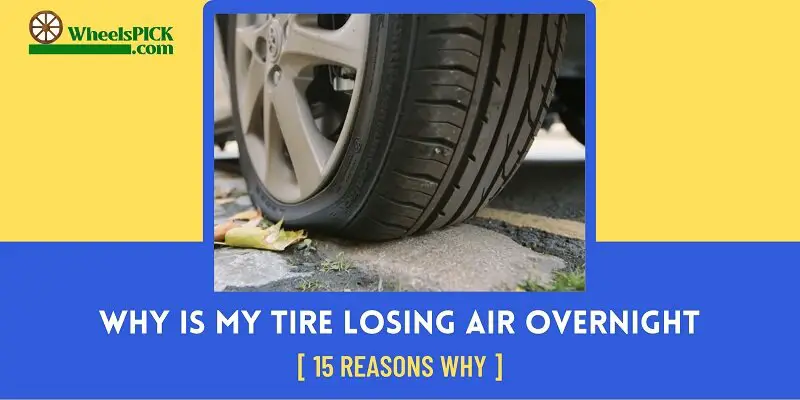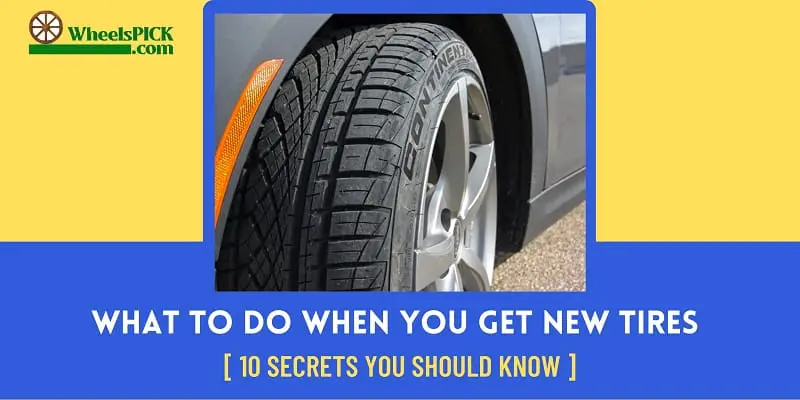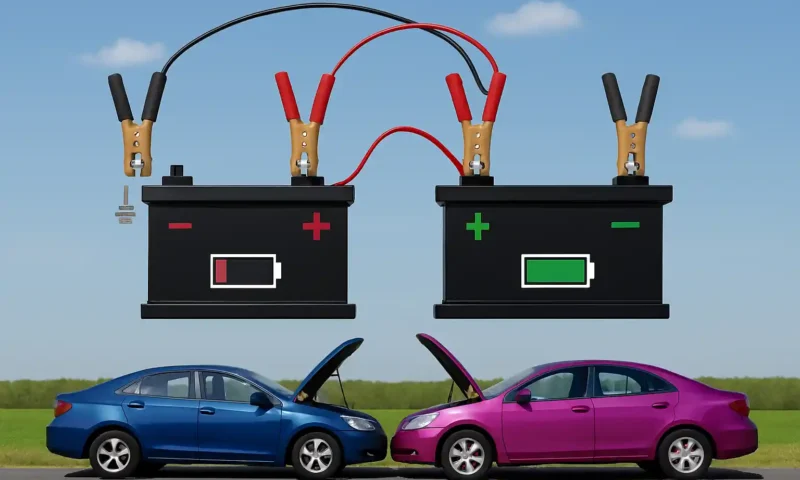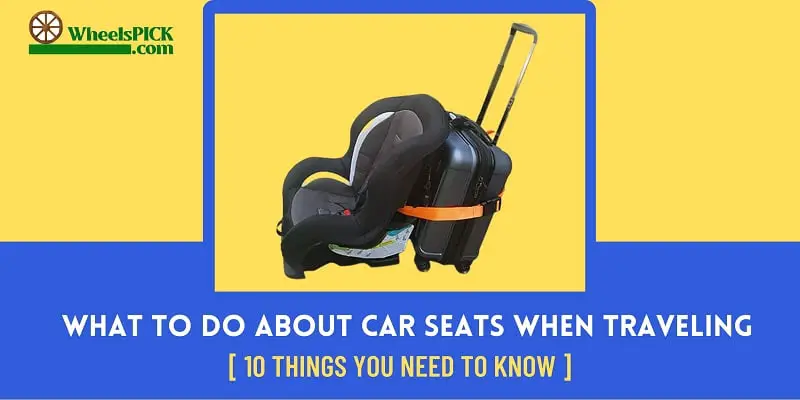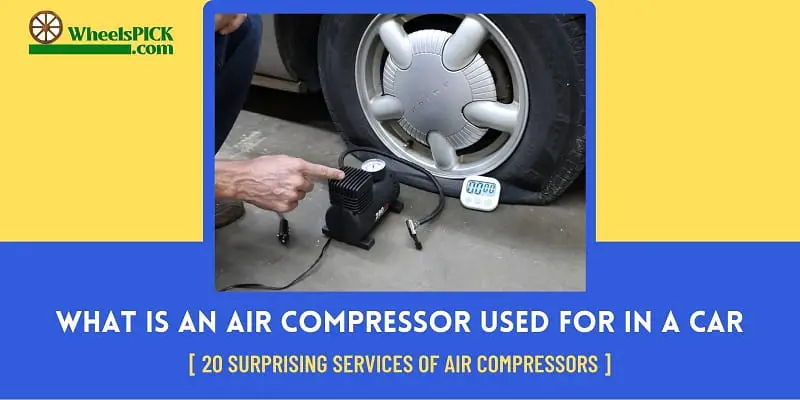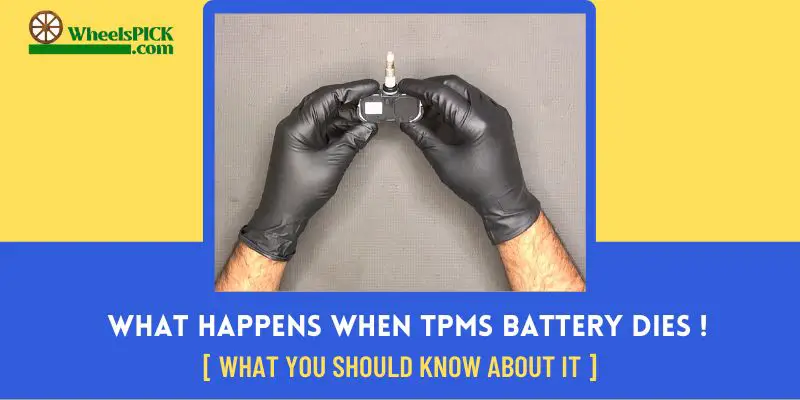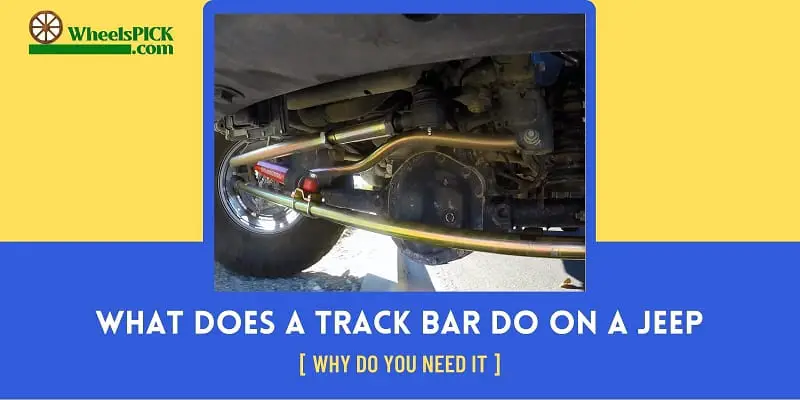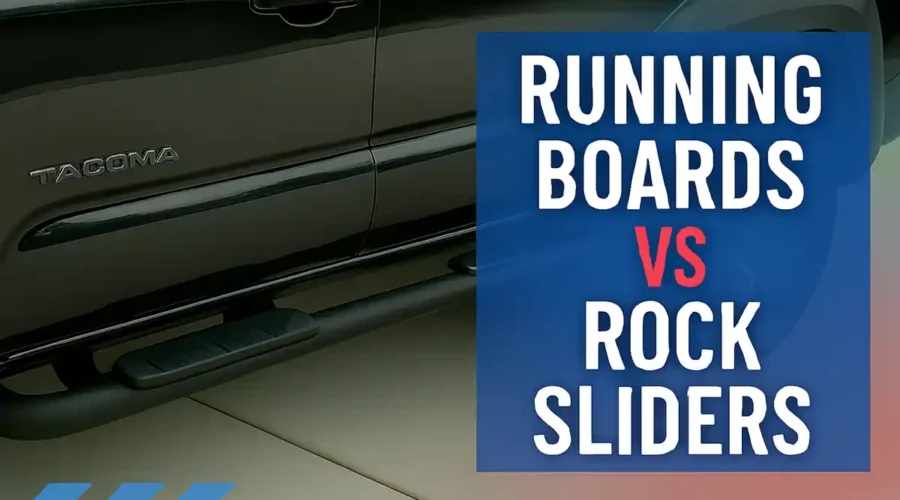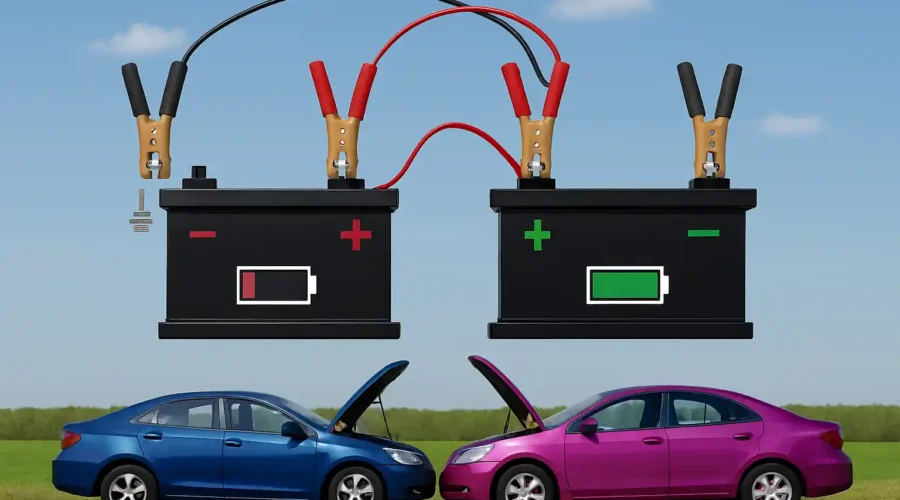Watching your tires go flat suddenly overnight is not a good scene. Generally, some sharp things like nails and pins cause minor damage. As a result, your tires lose air gradually. Other than that, there are several reasons for air loss, like temperature, tread damage, wheel damage, poor seal, etc. Usually, visible punctures or injuries can be easily fixed.
But it often becomes stressful when your tire is losing air without any visible issues. Stay with me for the rest of the article, as I will cover all the answers to why my tire is losing air overnight. So, without further ado, let’s get started.
Why Tires Lose Air, Even with No Visible Punctures
Holes or punctures are not always the reason for a tire’s air loss. Your tire can miss out on air overnight without any visible puncture on the tread or sidewall. Malfunctions of the tire valve and inadequate sealing between the tire and wheel can cause an air leak. Also, temperature changes have an effect on tire air pressure. To know more reasons, keep skimming.
Why is My Tire Losing Air Overnight? (Top 15 Reasons)
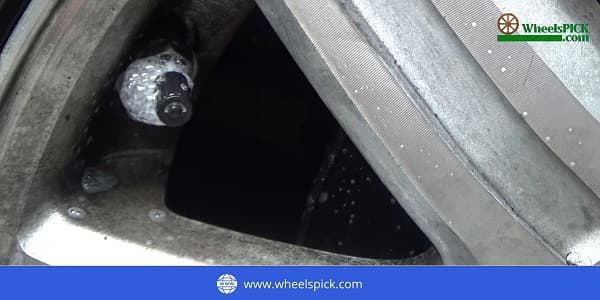
Well, it’s normal to lose air for tires in a slow manner. On average, tires lose air pressure by about 1-3 PSI monthly. But losing pressure or air overnight indicates leakage on your tire. Most of the time, tires face leakage on the tread. The tire tread is part of having contact with the roads. However, here are the 15 likely reasons for your car’s tire’s air loss. The most obvious ones are given at first.
1. Tread Damage
Tread is the rubber section of the tire. It maintains direct contact with the pavement. So, having a hole in the tread is a common thing. Roads are full of rubbish like nails, pins, glass, and blades.
While driving, they can damage your tire’s tread. As a result, you face overnight air loss. In most cases, these junks remain attached to tires. But, a minor pinhole can cause a more considerable air loss.
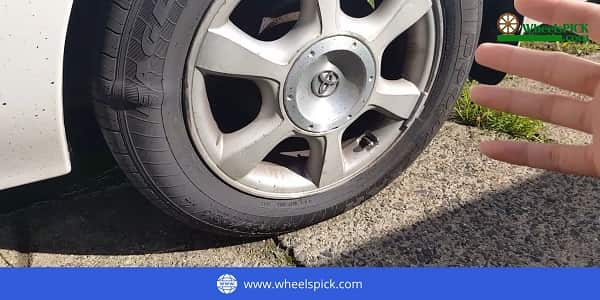
2. Pinhole in the Tire’s Sidewall
Sidewall leakage mainly occurs because of friction with something pointy. Look for holes in the sidewall to stop your air loss. A pinhole in the sidewall can cause excessive air loss.
Especially after hitting any stones or hard things, check the sidewall of your tire. To identify sidewall leaks, watch how to find out sidewall leaks.
3. Bent or Damaged Wheel
Hitting a pothole may damage your wheel. In addition, hitting an obstacle can also bend your tire wheel. This creates an impact on the joint section of the rim and tire.
As a result of seal breakage, your tire losses a significant amount of air. Therefore, your tires go flat overnight. Look for improper joints between the rim and tire after hitting deep potholes.
4. Poor Valve Stem
Leakage in the valve stem makes your tires go flat slowly. Due to age, dirt, and cracked valve stem gets damaged. Also, the rubber of the valve stem can collapse because of aging or dirt. A damaged valve allows the air to escape significantly. Make sure you have a good-quality valve stem.
5. Bead Damage
Bead damage is a common reason for air loss. Bead is the tire edge that rests on the rim. While tire installation, there might be a leak between the rim and tires. Also, inadequate rim sealer or bent wheel may damage the bead. By bead damage, little amount of air escapes. But it can create a big issue while driving.
6. Dry Rot
When tires become old, they have cracks. Cracked and fragile tires are a good reason for air loss. The tire components lose their working capabilities and start to decay after a certain time. This causes minor cracks on the tire, causing leakage of a lot of air. So, change your old tires if you are facing air loss.
7. Sharp Objects in the Tires
While riding on rough roads, a sharp object can get stuck in your tire. It creates puncture and also prevents air loss by logging in the tires. But not for a long time. Though your tires do not go flat instantly, it leaks air slowly. So, try to avoid rough roads and often check your tires.
8. Temperature
Temperature is a significant factor regarding air loss. Air pressure increases and decreases depending on the temperature outside. Due to cold temperatures, your tire can lose air. For every 10-degree temperature drop, your tire loses 1-2 PSI. To know more about temperature loss, read how temperature affects air loss.
9. Poor Repair Job
While changing tires, the mechanic cleans your rim and wheel. If the procedure is not done perfectly, the tire can face a lousy seal condition. Dirt and other particles can prevent the sealing process. In addition, the coating of uneven tire sealant on the rim affects the seal. Leading your tire to air loss.
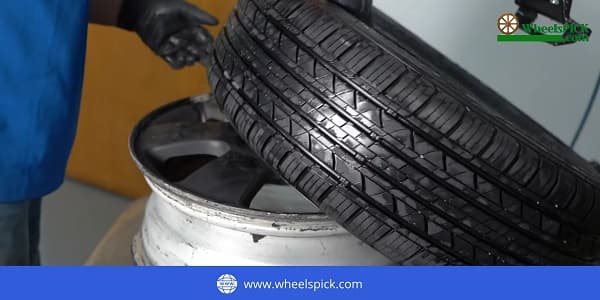
10. Valve Cap Issue
A valve cap keeps your valve stem out of dirt and other substances. Without it, the valve stem faces problems. Problems make your valve stem vulnerable. As a consequence, your tires start to lose air after some days. So, having a valve cap ensures your valve stem’s protection.
11. Pothole Damage
Potholes are hazardous for car tires. They also impact the car suspension, ball joints, arms rod, and structure. Because of this impact, car tires lose a lot of air. Several hits by a pothole can destroy the seal between the rim and tire bead. So, leakage on the seal consistently leaks air. Thereby, your tires get flat.
12. Rim Damage
Due to many circumstances rim of the tire gets damaged. An uneven rim can cause air leakage. While tire installation, make sure your rim is scratch and damage free. With a damaged rim, the tire bread does not set correctly. This allows air to lose slowly.
13. Corrosion
Tires are made of rubber. Rubber faces degradation over time. With the degradation, tires start to leak air. Unfortunately, dry rot and rubber corrosion are natural processes. So, if you are facing this issue, consider replacing your tire.
14. Repair Malfunction
Repair malfunction of the tires tread, bead, rim, and wheel creates air leakage sometimes. Ensure to have service from a good service provider. Most of the time, repairing your car tires from a local mechanic can increase your problem of air loss.
15. Bad TPMS Kit
A faulty tire pressure monitoring sensor gives you incorrect information about your tire’s air loss or pressure. Also, TPMS kit loses their working ability over time. Therefore, replace them after a certain time to have a good result.
FAQs (Frequently Asked Questions)
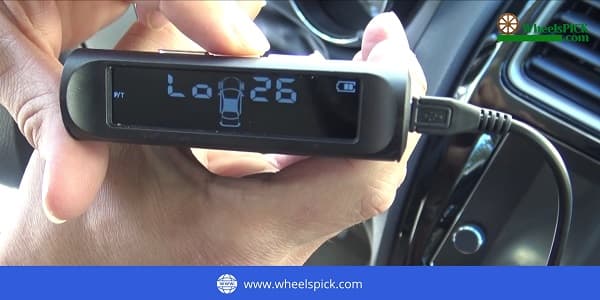
Q1. How Much Should It Cost to Fix a Tire Leak?
A) To repair a puncture on your tire, you might cost between $10-$20 dollars. But it depends on your location and puncture type.
Q2. Can You Drive on An Air-Losing Tire?
A) Driving at high speed with a slow air-leaking tire can cause a horrible accident. So, check your tire every time before a long journey. Make sure there is no air coming out.
Q3. Why Is My Tire Losing Air with No Leaks?
A) A faulty valve stem is the main culprit in most cases. Any dirt can easily damage the valve stem. So, use valve caps to protect your valve and prevent air loss.
Q4. How Do I Find a Leak in My Tires?
A) The process is quite easy. Take a soap-water mixture and spray it all over your tires. If bubbles come out of any spot, it indicates air leakage. Spray the mixture couple of times to get sure about the leakage.
Q5. How Do You Temporarily Stop a Tire Leak?
A) Use puncture sealant or a tire patch kit to stop your tire leak temporarily. A Tire patch kit and glue prevents air leak for a short time. For a long-lasting solution, go to a car shop to fix the tire leak.
Q6. Can Tire Pressure Change Overnight?
A) Riding at a higher speed can increase your tire pressure. Also, in a cold situation, tire pressure decreases. After riding your car, the air in your tires expands. But when you keep it in the garage, it cools down. So, automatically the pressure changes overnight.
Q7. How Much Air Pressure Makes Tires Lose in a Month?
A) It is normal to lose 1 to 3 PSI air in one month. But, more than that can be a sign of leakage.
Q8. Do Tires Lose Air When Not Driven?
A) Tires can lose air while they are immobile. As tires are made of rubber, rubber is honeycombed. Air molecules make their way outside through this structure over time.
Final Verdict
That’s a wrap for today. I hope you have feedback on why my tire is losing air overnight through this article.
To avoid an accident, ensure to have leakage-free tires. Though some reasons like bead damage, pinholes, corrosion, and rim damage are not visible every time, you need to be careful. If you can’t find the reason for your tire’s air loss, go to your nearby car retailer store for a checkup. So, best of luck with your tires, and have a nice day.

